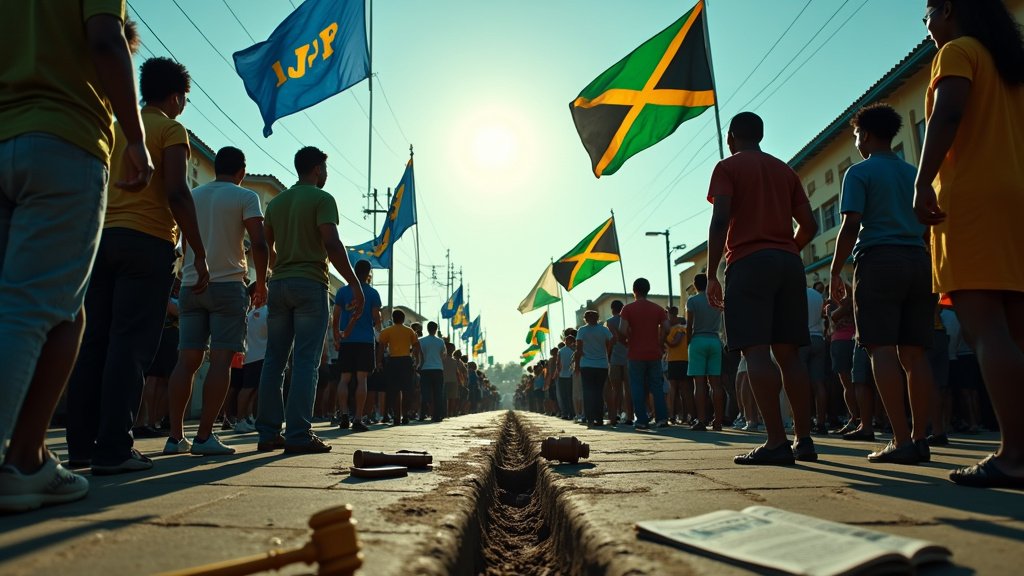Political Polarization Clouds Judgement as Jamaica Approaches Historic Election
KINGSTON, JAMAICA – As Jamaica gears up for an upcoming election, a palpable sense of political tribalism has taken root, significantly influencing public discourse and the ability of citizens to objectively assess their government’s performance. A recent poll, conducted jointly by RJR-Gleaner and pollster Don Anderson, sheds light on this concerning trend, revealing a population increasingly divided along party lines, a phenomenon that could have lasting repercussions for the nation’s democratic processes.
The survey, which engaged 1,033 registered voters between May 18 and June 7, paints a picture of a citizenry struggling to separate political allegiance from objective evaluation. The findings are particularly striking. Nearly 30% of those polled were unable to identify any areas where the Andrew Holness administration, in power since 2020, had excelled. Similarly, almost a quarter of respondents were unable to point out any specific failures of the government. This lack of clear-eyed assessment, pollster Don Anderson noted, strongly correlates with individuals’ pre-existing affiliations with either the governing Jamaica Labour Party (JLP) or the opposition People’s National Party (PNP). The data suggests that rather than evaluating based on tangible accomplishments or shortcomings, a significant segment of the population is viewing governmental actions through a partisan lens.
Lack of Confidence in Combating Corruption
Compounding the issue is the pervasive lack of confidence in both major political parties’ commitment to combating corruption. The poll uncovered deep skepticism among the electorate, with over 26% of respondents stating that neither the JLP nor the PNP demonstrated a strong dedication to rooting out graft and unethical practices. The implications of this distrust are profound. Corruption undermines public trust in institutions, erodes the rule of law, and ultimately hampers economic development and social progress. The governing JLP and the opposition PNP found themselves nearly tied in terms of public confidence. This indicates a systemic problem, rather than merely a partisan one, leaving many Jamaicans feeling disenfranchised.
The survey also highlighted the limited public awareness of the government’s composition beyond the top tier. While the Prime Minister is widely recognized, a significant portion of the population struggled to name any cabinet ministers beyond the head of government. This lack of familiarity with the individuals responsible for key portfolios raises questions about accountability and the ability of the public to hold specific ministers responsible for their actions. Beyond the Prime Minister, two individuals emerged as the most recognizable government figures: Health Minister Dr. Christopher Tufton, and Culture Minister Olivia Grange. The prominence of these two ministers, relative to others in the cabinet, suggests a focus on either particularly salient issues or strong public-facing communication from their respective ministries.
The Road Ahead
The findings of the RJR-Gleaner/Don Anderson poll underscore the urgent need to address the corrosive effects of political tribalism in Jamaica. As the nation heads towards an election, the ability of voters to make informed decisions, based on the merits of policies and the performance of the government, is paramount. Fostering a more informed and engaged citizenry requires a multi-pronged approach. This includes promoting media literacy, encouraging critical thinking skills, and strengthening independent institutions to ensure transparency and accountability. Only through these measures can Jamaica overcome the challenges posed by political polarization and secure a more democratic future for all.

